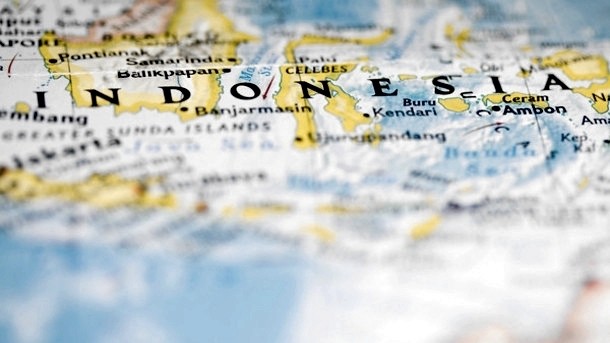Dateline Southeast Asia
Cool Indonesian economy still attracts billions in foreign investment

International investment accounted for 60% of all manufacturing commitments last year, data from the Indonesia Investment Coordinating Board (BKPM) suggest.
BKPM said that Indonesia is no longer merely seen by foreign investors as a market for food exports but as a production base.
As such, the board believes the food sector can become a major engine for growth within the country's manufacturing industry, especially at a time when Indonesia’s economy is slowing.
Weak global demand for commodities and pressure on the rupiah have hit overall economic growth and took their toll on the manufacturing industry in 2015, according to BKPM figures.
The economy grew by an annual rate of 5.2% in the third quarter, a drop from 5.73% over the same period in 2014.
Indonesia’s full-year growth is forecast to be around 5.5%, which is comparable to 2013 and 2014, but significantly down from the 7% it registered in 2011 and 2012.
In September, the rupiah hit a 17-year low of around Rp 14,200 per US dollar, affecting local manufacturers and consumers.
While segments like textiles and automotive saw sharp declines in sales, the food and beverage industry expanded by 6.95% year on year in the third quarter, leading economists to argue that the country was being forced to shift from its natural resource-based manufacturing industry to a processing-based industry to record more stable industrial growth in the years ahead.
The Indonesian Food and Beverage Association (Gapmmi) also believes that the positive trend in the nation's food industry will continue as foreign investors, particularly from the United States, South Korea and Japan, have shown interest in Indonesia's food and beverage industry.
With a population of over 250m people, including a rapidly expanding middle class, Gappmi believes that turnover in Indonesia's food and beverage industry stood at about IDR1,200tr (US$87.6bn) in 2015—up almost US$200bn on 2014.
More stories from southeast Asia…
Food poisoning cases soar after 650 Vietnamese workers are hospitalised
Hundreds of factory workers have been hospitalised in the latest incident in Vietnam of mass food poisoning caused by eating at a staff canteen.
More than two-thirds of the 650 victims at Regina Miracle International Vietnam, a Hong Kong-owned garment factory that manufactures lingerie for labels including Victoria's Secret, were sent to hospital.
Most of them suffered from dizziness, stomach pain and headaches after eating lunch at the canteen in in Hai Phong, a city 60km from Hanoi.
Authorities have been investigating the cause of the outbreak while the canteen was temporarily closed.
Food poisoning outbreaks, especially those taking place in factory canteens, have become increasingly common in Vietnam.
A report by the health ministry's food safety department has shown that in the last four years, more than 6,000 people have been hospitalised in 84 food poisoning cases that occurred at canteens in industrial zones and export processing zones.
Further official statistics revealed that more than 380 people across the country suffered from food poisoning in October alone, when food safety authorities conducted an investigation into the issue.
They found that 68% of cases occurred at public canteens in industrial zones, with most of these originating from food suppliers who did not ensure food hygiene and safety during production and processing, according to Administration for Food Safety and Hygiene director Nguyen Thanh Phong.
Phong said that nearly 20% of the contract meal providers were not certified for food safety, with around 16% failing to meet hygiene regulations and nearly 10% found to be using unidentified ingredients.
Philippines could see mandatory nutrition labelling after Bill submission
A law has been tabled in the Philippines that will require food manufacturers to label their products with nutrition information.
The Bill for the proposed Philippine Nutrition Label Act also calls for allergen declarations to put the the country in line with many international regulatory systems.
Rolando Andaya Jr, who has sponsored the Bill, has been emphasising how the move could promote public awareness on the importance of a balanced diet.
"The proper labelling will provide the consumers with enough information pertaining to their food intake in order to help them make dietary decisions that can improve their health," Andaya said in a statement.
He said labels should contain serving and calorie information, as well as measures of vitamins, minerals, fat and saturated fat, cholesterol, sodium, carbohydrates, sugar, dietary fibre, protein and other nutrients.
The Bill also provides that food items should not be distributed unless they conform to food and drug regulations.
It also mandates food safety agencies to confiscate the consumer products proven to be hazardous to public health, though it does not cover those who are engaged in the wholesale and retail distribution of commodities.
Should the Bill be passed, violators will face fines ranging from P10,000-300,000 [US$212-636), depending on the gravity of the offence.









